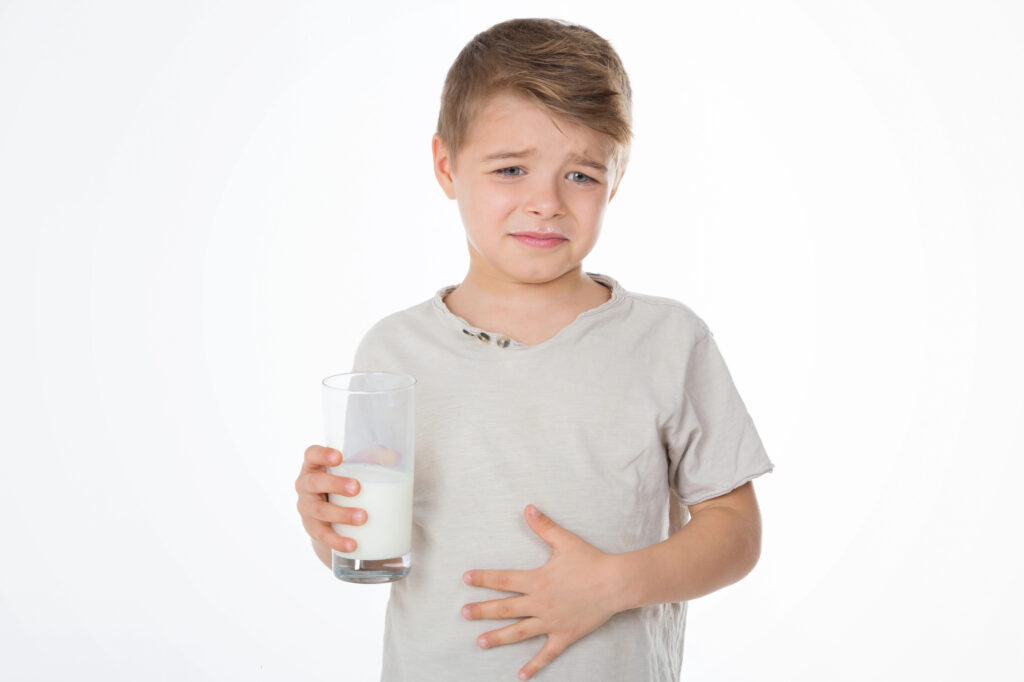Milk allergy is one of the most common food allergies among children. Symptoms can range from mild to severe, including wheezing, vomiting, and hives. And in some cases, milk allergies can even cause anaphylactic shock. Although most grow out of it, for some it becomes a life-long challenge to avoid all foods that include milk.
Previous research has found that milk allergy is improved by oral immunotherapy, a treatment in which patients purposely drink small amounts of milk to build up a tolerance. Unfortunately, while allergic reactions are controlled during treatment, in most cases, tolerance disappears soon after the treatment ends. Studies on mice have also suggested that gut bacteria may help reduce allergic reactions to some foods.
Building on these previous ideas, researchers led by Hiroshi Ohno, MD, PhD, of the RIKEN Center for Integrative Medical Sciences in Japan, set out to determine whether there’s a relationship between the gut microbiome and oral immunotherapy for milk allergies. Their results were published in the January issue of Allergology International.
The RIKEN team followed 32 children with cow’s milk allergy who received oral immunotherapy for one month in a hospital setting. The children were carefully monitored for severe allergic reactions, and four had to drop out for this reason. The researchers also collected regular blood and fecal samples during the hospital stay and follow-up periods.
For the follow-up, the remaining 28 children completed an additional 12 months of maintenance oral immunotherapy treatment at home, after which, they avoided milk completely for two weeks. The children then participated in a double-blind, placebo-controlled food challenge to see if they could still tolerate milk without any allergic reactions. During the food challenge, children were randomly assigned to two groups. The first group received 0.01 milliliters of milk, with the dose increasing every 20 minutes until they either had an allergic reaction or until they could drink the final 30 milliliters without a reaction. The second group underwent the same procedure with increasing doses of placebo.
The researchers found that after two weeks of avoiding milk, most of the children lost the tolerance they had built up during oral immunotherapy. Only 7 of the 28 children passed the food challenge, even though they all had been able to drink milk safely at the end of the treatment.
To understand why the treatment worked for these seven children but not the others, the researchers analyzed the blood and fecal samples, focusing on immunological and bacterial changes during the treatment period. They found that unsuccessful treatment was more likely in children who were being treated for eczema or asthma and in children who initially had higher levels of milk-protein antibodies.
Among the gut bacteria, the presence of Bifidobacterium, a genus of beneficial bacteria, was related to a higher chance of successful treatment. In fact, only children who successfully passed the food challenge showed an increase in Bifidobacteria during the course of the study.
Conclusions
The results are important, the researchers say, because altering the composition of the gut microbiome is relatively easy, so the introduction of Bifidobacteria could be a relatively simple and inexpensive way to improve oral immunotherapy outcomes in children with milk allergies.
“With this study, we have identified gut environmental factors that help establish immune tolerance against cow’s milk allergy via oral immunotherapy,” says Ohno. “The next step is to examine the mechanisms underlying this phenomenon and to develop ways to improve the effectiveness of oral immunotherapy, such as the addition of probiotic supplements.”






